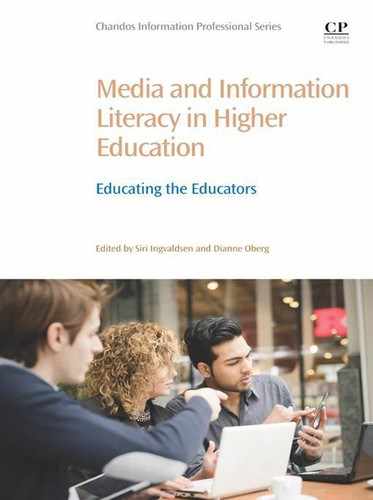Book Description
Media and Information Literacy in Higher Education: Educating the Educators is written for librarians and educators working in universities and university colleges, providing them with the information they need to teach media and information literacy to students at levels ranging from bachelor to doctoral studies. In order to do so, they need to be familiar with students’ strengths and weaknesses regarding MIL.
This book investigates what university and college students need to know about searching for, and evaluating, information, and how teaching and learning can be planned and carried out to improve MIL skills. The discussions focus on the use of process-based inquiry approaches for developing media and information literacy competence, involving students in active learning and open-ended investigations and emphasizing their personal learning process. It embraces face-to-face teaching, and newer forms of online education.
- Examines the intersecting roles of academic librarians, teacher educators, and library educators in preparing library students and teacher education students to use the library
- Brings new perspectives from both teacher educator and library educator, and draws connections between higher and secondary education (K12)
- Draws on a number of competences, skills, knowledge, experiences, and reflections from a variety of perspectives, and focuses on libraries as efficient tools in all kinds of education and learning activities
- Written by an international group of authors with firsthand experience of teaching MIL
- Looks at how libraries can contribute to the promotion of civic literacy within higher education institutions and in society more widely
